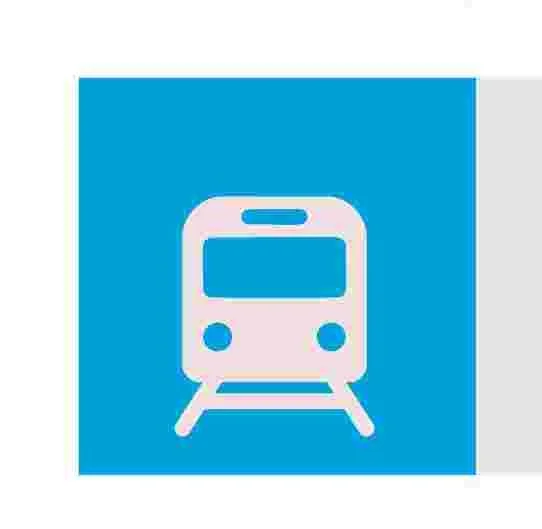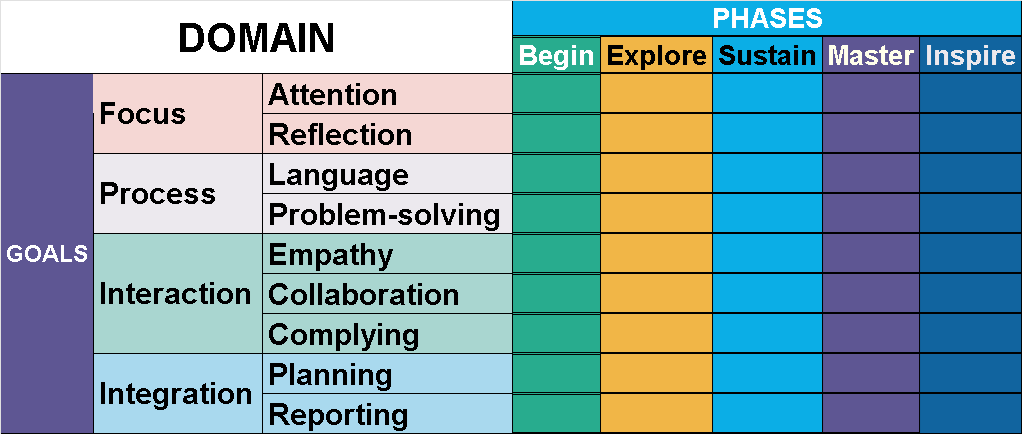
Sustain
The Sustain phase refers to using a rich variety of practices that we have learned over the years to perform and adjust automatically. We generally learn these skills in distinct settings, work skills in universities or job settings and life skills at home or in the community.
Experts, whether of work or life skills, may not use the same terminology as this site does, but they do base their actions on extensive experience and distinguish different levels of expertise. We know this from 350 developmental interviews in over 100 domains of work and life. Every interview resulted in four or five unique levels of complexity related to the major goals of their own domain of expertise.
The interviews resulted in filling the empty cells in a table with unique definitions to make a matrix. For every domain on this site, the 9 goals and 5 phases, create 45 modes. If we interviewed several experts from the same domain, we would combine their insights into one definition for each mode.
Matrices for 36 Domains
We organize our knowledge of the sustaining phase into four categories based on the setting where they are most often learned:
Professions in educational settings.
Trades on the job.
Social skills in community settings.
Personal skills at home.
For each setting we identified nine domains based on the fundamental human needs reported by Manfred Max-Neef in his “Human Scale Development.” The result is a highly diverse set of domains that broadly illustrate most of human development.
We use matrices to describe each domain. Each matrix lists all nine goals and for each describes the four phases that are unique (avoid is the same for all domains, inspire is never predictable).
Human Needs Organize Domains
In order to provide a wide array of examples, we group both work and life domains into nine categories inspired by the fundamental human needs reported by Manfred Max-Neef in his “Human Scale Development.” We further divided these categories into three subcategories as follows:
Survival
Short-term SUBSISTENCE
Medium-term,SAFETY
Long-term SHELTER
Wellbeing
Short-term HEALTH & SUPPORT
Medium-term REGULATION
Long-term LEARNING
Significance
Short-term LEISURE
Medium-term CREATIVITY
Long-term UNDERSTANDING
How We Learn New Phases
The learning zone affects what and how we learn. Beginners have little concept of what it takes to sustain the goals in a domain. Explorers get an idea of what skill in a domain might be like but rarely are able to conceive of what it might take to master it thoroughly enough to help less experienced users.
We need to explore a new domain before we can become experts, and we need years of plying a trade or profession or thriving at home or in our communities before we become masters. See the master page to learn about this phase.
Data Often Collected on These Domains
Organizations collect data on what their members do. When they distinguish levels of complexity and record how often each level occurs, they summarize them by percentages and averages, like online ratings. Their numerical values are then stored in the empty cells of a table.
Such results omit development. To record development, we must list changes over time. Those types of records are more typical of teaching and mentoring organizations, which we describe those on the master page..


